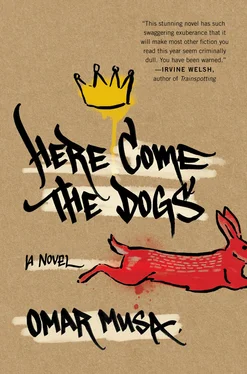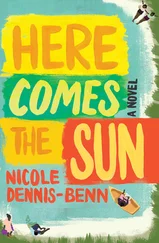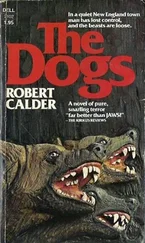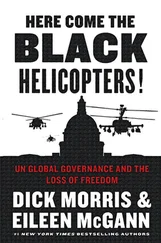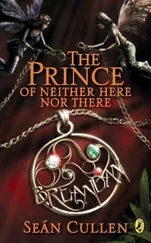hums on my Achilles.
Now I’m in the rhythm,
counting my shots:
miss, miss, one,
miss, two, miss,
three, four, five,
miss, six, seven,
miss.
That word floats into my head.
Afakasi — the Samoanisation of ‘half-caste’.
Not white, not brown.
Outcasts, loners, entitled.
I keep shooting, angry and imprecise,
until the rhythm calms me down again.
My knees and ankles ache after minutes
and I take a long draught of water,
squinting at the sun,
when a man calls out.
His name is Fred,
a small Filipino dude with a transatlantic accent
and a furry lip.
He’s excited to have made a new friend.
As he shoots wildly,
he explains that he just moved from Perth.
He’s shirtless as well,
lean and muscled,
which makes me feel self-conscious.
‘First to five?’ he says.
I’m worried about the new tatt,
but I nod.
He starts quickly,
feinting to the right then throwing up an improbable shot,
which banks hard off the backboard and in.
1–0
He has no technique,
but makes up for it with quick feet and floaty,
almost boneless movement.
He’s difficult to read.
He dribbles to his left,
gets trapped,
slips,
then suddenly jumps and scoops a shot up with his right.
Swish.
I land awkwardly
and there’s a dull toll in the back of my head.
2–0
Everything swollen and tight already.
I try to focus.
This time, this time I’ll get him.
I stretch out my arms in a defensive stance,
showing off my wingspan
and getting in his face.
Fred trips forward,
suddenly unsure,
apologises when he steps on my foot,
then runs in circles around the three-point line before I get an easy
strip.
I face him and it takes only a flicker
for my mind to register every possibility,
the lie of the court,
his uncertain feet.
I jab step to the left.
He bites, so I drive hard to the right
and bully the shorter man out of the way for an easy lay-up.
1–2
Check ball.
I wipe sweat away with my forearm,
then begin dribbling from the three-point line.
I drive right,
cross him up with my left hand,
the Shammgod move leaving him stranded.
I finger roll the ball in smoothly.
2–2
He looks at me in awe. ‘Did you used to play? Properly, I mean?’
‘Nah. Just messing around.’
‘Damn. You should join a team, bro.’
I don’t reply.
The next points don’t come for several minutes.
I shake beads of sweat off my dreds,
lungs small as a baby’s fist.
My Achilles white hot.
Impotence and fury.
I try to rearrange my features into the mask I used to wear,
but I’m breathing so heavily it’s difficult to.
Fred seems to notice the change in atmosphere
and has fear on his mug.
He hadn’t anticipated being drawn into a battle of this kind.
The sound of the ball on the asphalt
like a war drum.
I post him up,
use my size against him
and back him down,
slowly, slowly,
facing away from the basket,
slowly, slowly, wearing him down.
It’s ugly but effective,
not the fancy moves I once prided myself on.
I pivot and my hook shot drops in.
One more to win.
I summon my fury and focus it into my body.
I drive for a fadeaway,
mishandle and bounce the ball off my shin.
It shoots over the dry grass
and rolls down a ditch next to the dilapidated wooden fence.
As I jog to retrieve it,
I’m suddenly filled with a deep sadness
at this deteriorating body,
my waning manhood,
and I feel tired.
I wish I were alone.
Fred shoots and misses.
I finish it off with a feathery jumper that he praises exuberantly.
‘Mad shot, bro!’
As I drink deep from my water bottle
and twist on my hips,
I notice crumbs of light sparkling on the edge of the court,
like the glow of treasure.
I stand for a moment,
half bent,
staring,
thinking about how it was luck that won it,
how I only shot the last one
because I was too damn tired to run
or back him down.
From a house nearby
I hear that ubiquitous Lorde song, ‘Royals’.
I realise the sparkle on the blacktop
is the remnants of a beer bottle broken long ago.
High above is a red kite,
twisting and turning.
I walk away from the court,
thinking of the sparkle and the kite.
I feel a bit ashamed at not saying goodbye to Fred,
but I keep walking,
faster and faster.
I hear yelling,
and ignore it until it gets to my shoulder.
It’s Fred, breathless. ‘Your dog! Your dog!’
‘Ah shit, thanks mate.’
I try to smile.
Up close, Mercury Fire unnerves me.
He once inspired excitement and joy
but now he seems the portent of something dangerous,
something tragic and shameful.
Of failure.
He yawns
and the silt of resentment boils up in me.
When I look into his eye,
it’s my own eyes I see.
Jimmy and Solomon wander through the supermarket, bored, while Ulysses squeezes avocados and raps on coconuts. First, they have a chilli-eating contest, which Jimmy wins determinedly. Panting and fanning their mouths, they go into the cold room to see how long they can stay in there. Soon bored, they move to the toy aisle and find a packet of plastic cowboys and Indians. The whole packet only one dollar.
A voice from above, ‘I reckon I could spare a buck.’
An immaculately dressed man is standing next to them, pencil thin with a smile on his face. Wearing fashionable sunglasses, he has light-brown skin and is of ambiguous ethnicity. He crouches.
‘Hi, James,’ he says.
‘Who are you?’ says Solomon.
‘You must be Solomon. Big fella.’ The man offers his hand and Solomon shakes it reluctantly, by the fingertips only. The man’s hand is bone-dry. He lets go and conjures a two-dollar coin, as if from nowhere. He lets it trip down the knuckles of his right hand and drop into his left palm, then holds out the coin to Jimmy. As he does, a shadow appears over him and he is knocked to the ground by a crushing blow. Ulysses Amosa. The man stands up, bleeding from his nose onto his starched white shirt, afraid and blinking. He tries to smile and reminds Ulysses that they were once best of friends. As soon as he stands to full height, another blow. This time Ulysses hisses, ‘Get out. Get the fuck out of here now.’ The man scrambles away. His sunglasses bounce on the tiles and a manager waddles over to berate Ulysses, who is shaking. The boys are astonished — they have never heard Ulysses Amosa swear.
Aleks has a day off work and is in his basement.
Steel, paint, chemicals, petrol. There is a big workbench jumbled with carpenter’s tools and a tall shelf behind it. Aleks picks up a ball bearing, the size of a marble, turns it between forefinger and thumb, and observes it in the meagre light, silver, before placing it on the shelf. As children, he and the boys were constantly on the hunt for ball bearings, the king cheat of marble games. He smiles, climbs on a stool, reaches up high and pulls down the gym bag.
He opens it and takes out what is inside: a 22-calibre handgun, black snout gleaming. He lays it in his lap and disassembles it, then cleans it slowly. A.22 is light and perfect for wounding, good for hits because the bullet doesn’t break the sound barrier and lodges in the brain. Guns are nothing new to him — in the Balkans, most homes would have one.
Читать дальше
